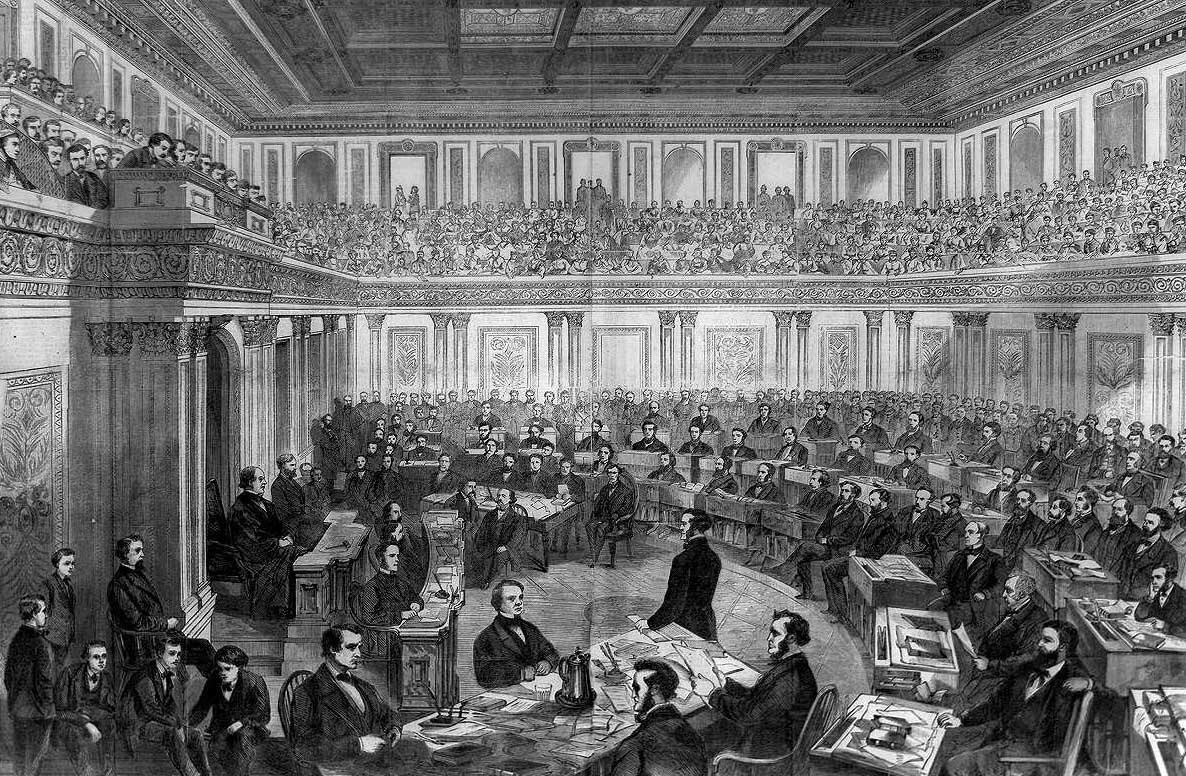The Impeachment of Andrew Johnson, Part Two
Andrew Johnson’s impeachers failed by one vote to win the two-thirds majority needed in the Senate.

Impeachment, the process used by legislative bodies to remove public officials from office for corruption, criminal acts, or other specified charges, had its modern origins in feudal England - specifically, it dates from the fourteenth century - from whence it came to the United States. At the time of the Constitutional Convention, in 1787, there was considerable debate over whether or not to include such a procedure, and under what circumstances it was to be used.
As finally adopted, the U.S. Constitution gives to the House of Representatives the sole right to impeach, in effect to indict, and to the Senate the obligation to try those charged with impeachable offences. Article I, Section 3, stipulates:





